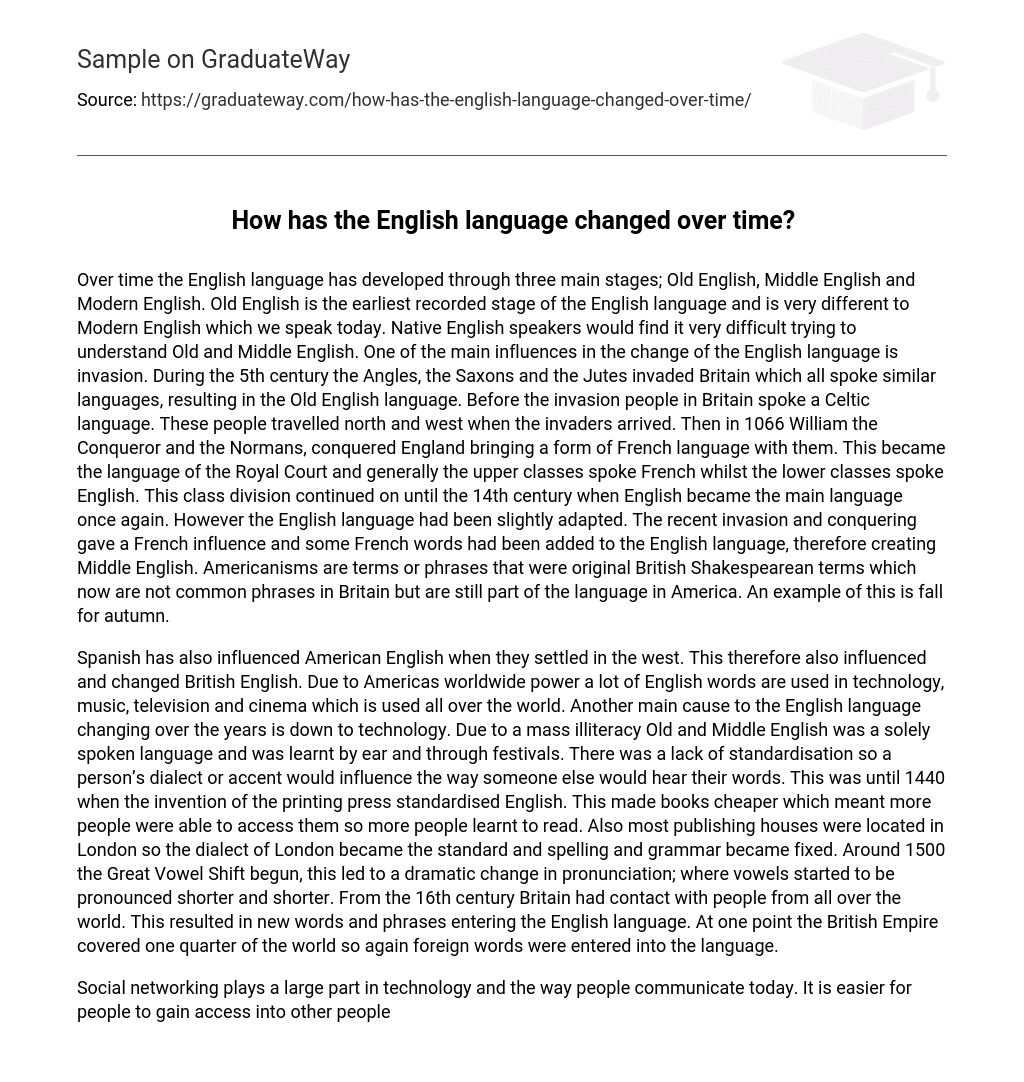Over time the English language has developed through three main stages; Old English, Middle English and Modern English. Old English is the earliest recorded stage of the English language and is very different to Modern English which we speak today. Native English speakers would find it very difficult trying to understand Old and Middle English. One of the main influences in the change of the English language is invasion. During the 5th century the Angles, the Saxons and the Jutes invaded Britain which all spoke similar languages, resulting in the Old English language. Before the invasion people in Britain spoke a Celtic language.
These people travelled north and west when the invaders arrived. Then in 1066 William the Conqueror and the Normans, conquered England bringing a form of French language with them. This became the language of the Royal Court and generally the upper classes spoke French whilst the lower classes spoke English. This class division continued on until the 14th century when English became the main language once again. However the English language had been slightly adapted. The recent invasion and conquering gave a French influence and some French words had been added to the English language, therefore creating Middle English. Americanisms are terms or phrases that were original British Shakespearean terms which now are not common phrases in Britain but are still part of the language in America. An example of this is fall for autumn.
Spanish has also influenced American English when they settled in the west. This therefore also influenced and changed British English. Due to Americas worldwide power a lot of English words are used in technology, music, television and cinema which is used all over the world. Another main cause to the English language changing over the years is down to technology. Due to a mass illiteracy Old and Middle English was a solely spoken language and was learnt by ear and through festivals. There was a lack of standardisation so a person’s dialect or accent would influence the way someone else would hear their words.
This was until 1440 when the invention of the printing press standardised English. This made books cheaper which meant more people were able to access them so more people learnt to read. Also most publishing houses were located in London so the dialect of London became the standard and spelling and grammar became fixed. Around 1500 the Great Vowel Shift begun, this led to a dramatic change in pronunciation; where vowels started to be pronounced shorter and shorter. From the 16th century Britain had contact with people from all over the world. This resulted in new words and phrases entering the English language. At one point the British Empire covered one quarter of the world so again foreign words were entered into the language.
Social networking plays a large part in technology and the way people communicate today. It is easier for people to gain access into other peoples lives from all over the world and from a whole variety of different cultures and see the words or phrases they use. This makes it easier for people to adopt another cultures language into their usual English language, therefore changing the English language. Colloquialisms also help contribute to our ever changing language. No matter where you go in the world every place has it’s own certain slang words which can now due to social networking and the media can be taken all across the globe and vice versa. For example, television shows such as ‘The Only Way is Essex’ is very popular all over the country and some slang words such as ‘reem’ and ‘jel’ which originated from Essex are now spoken all over the country and is even in peoples every day language.





